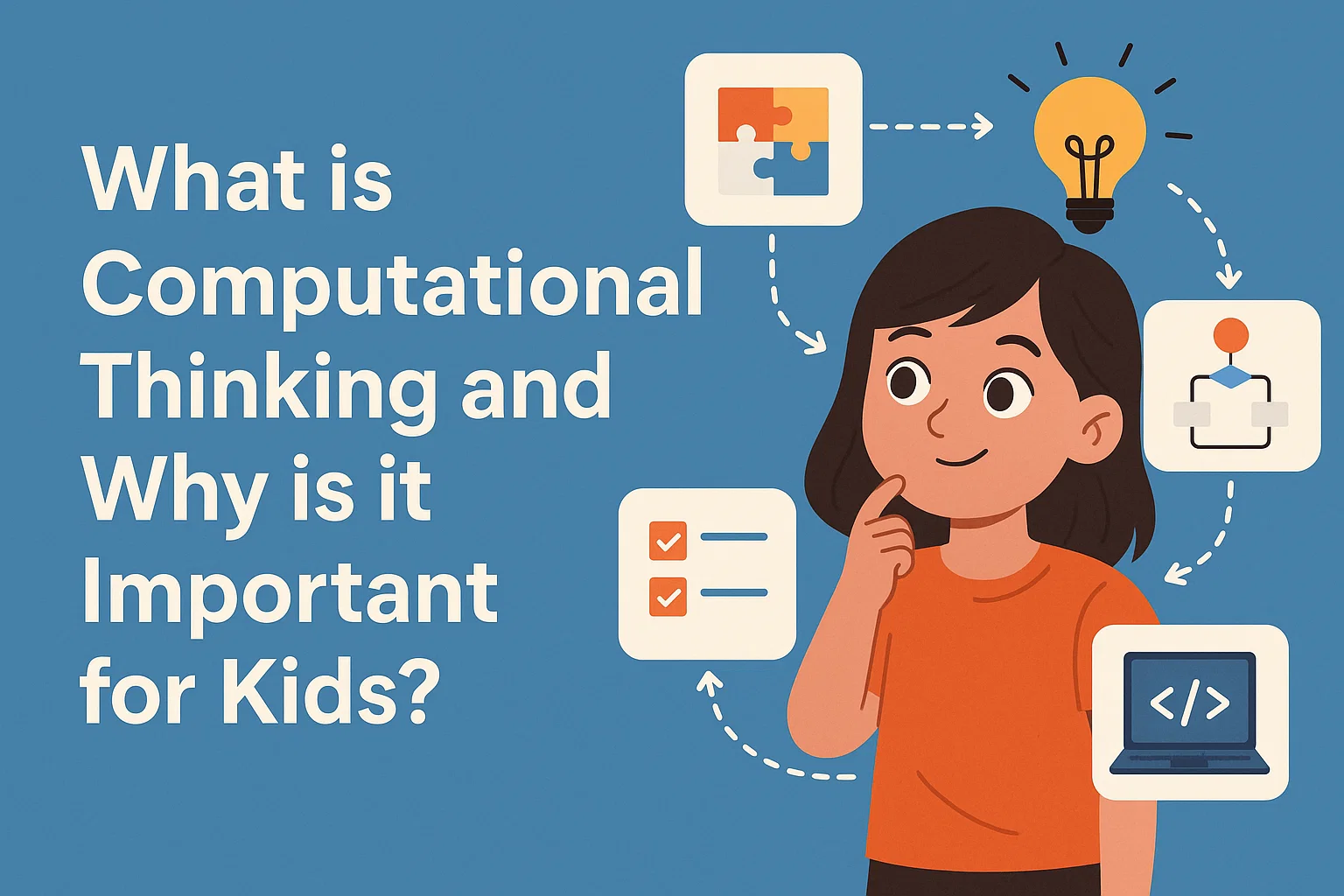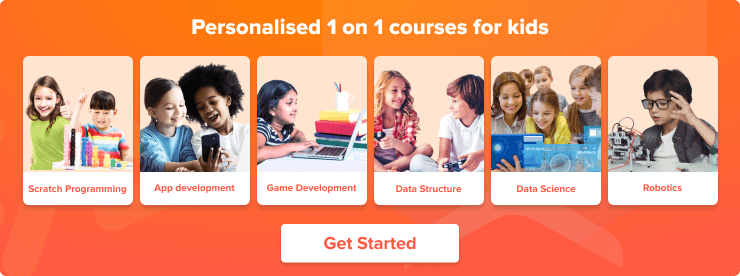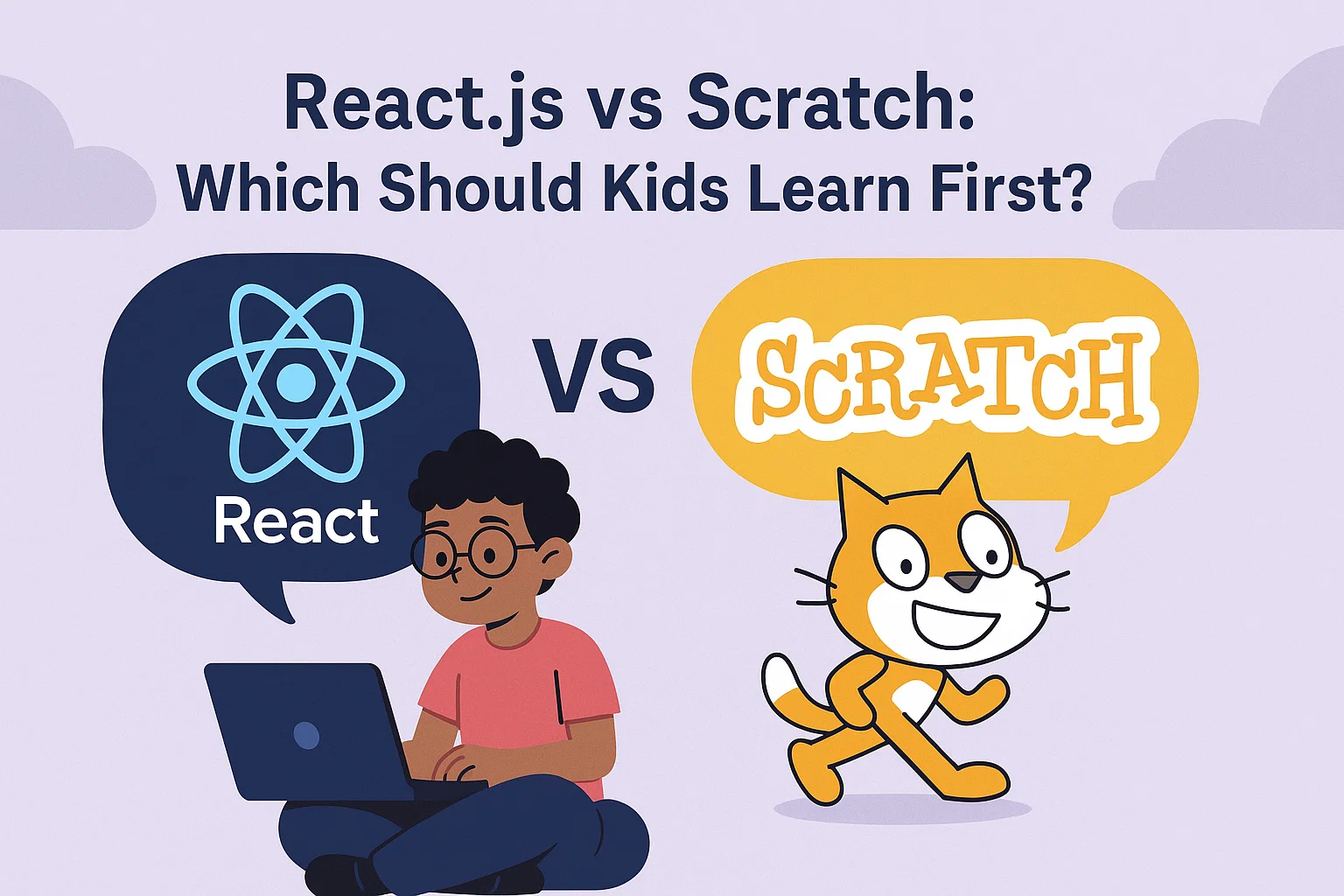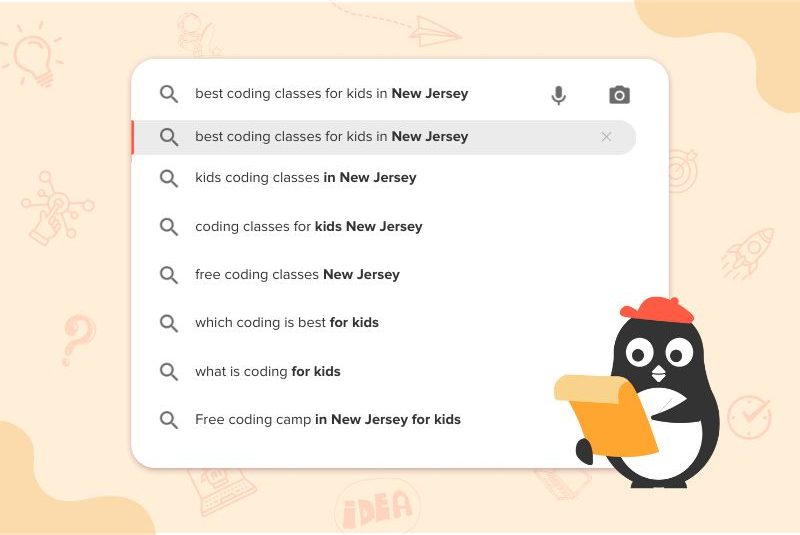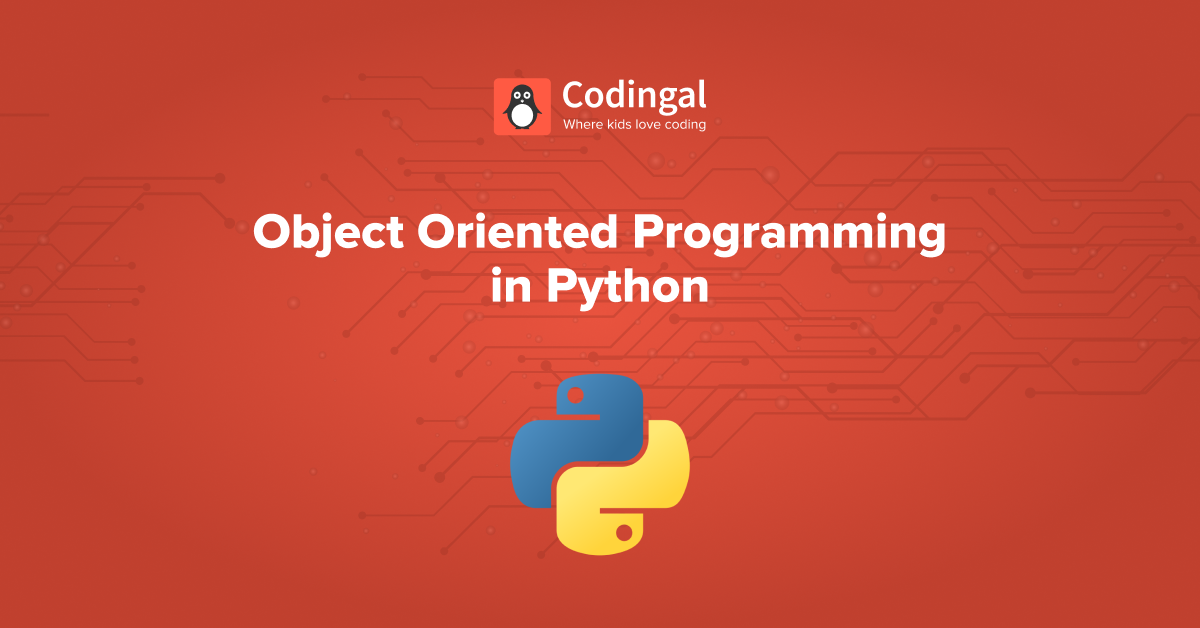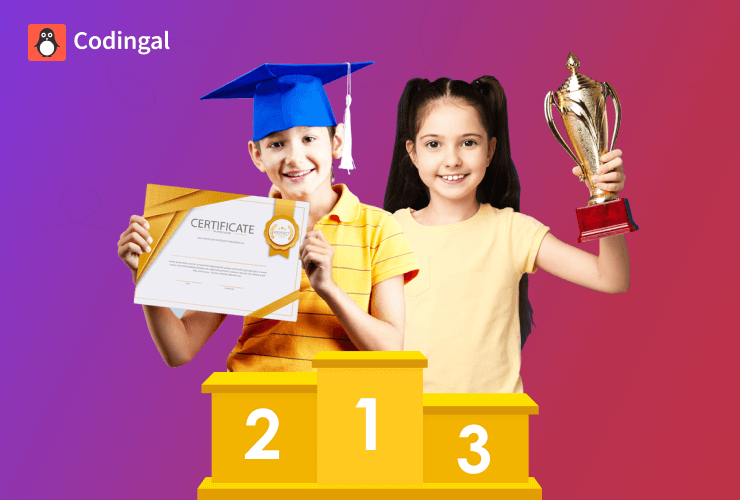In today’s rapidly evolving digital world, computational thinking (CT) is no longer just a buzzword—it’s a critical skill for kids. Whether your child is solving math problems, creating a game, or tackling everyday challenges, CT equips them with a structured way to think logically, solve problems, and innovate.
But what exactly is computational thinking, and why should parents encourage it from an early age? Let’s explore.
What is Computational Thinking?
Computational thinking is a problem-solving approach that involves breaking down complex problems into manageable steps, identifying patterns, designing solutions, and thinking logically about outcomes.
It is not just coding, although it forms the foundation for programming. It’s a way of thinking that applies to science, math, engineering, and even day-to-day tasks.
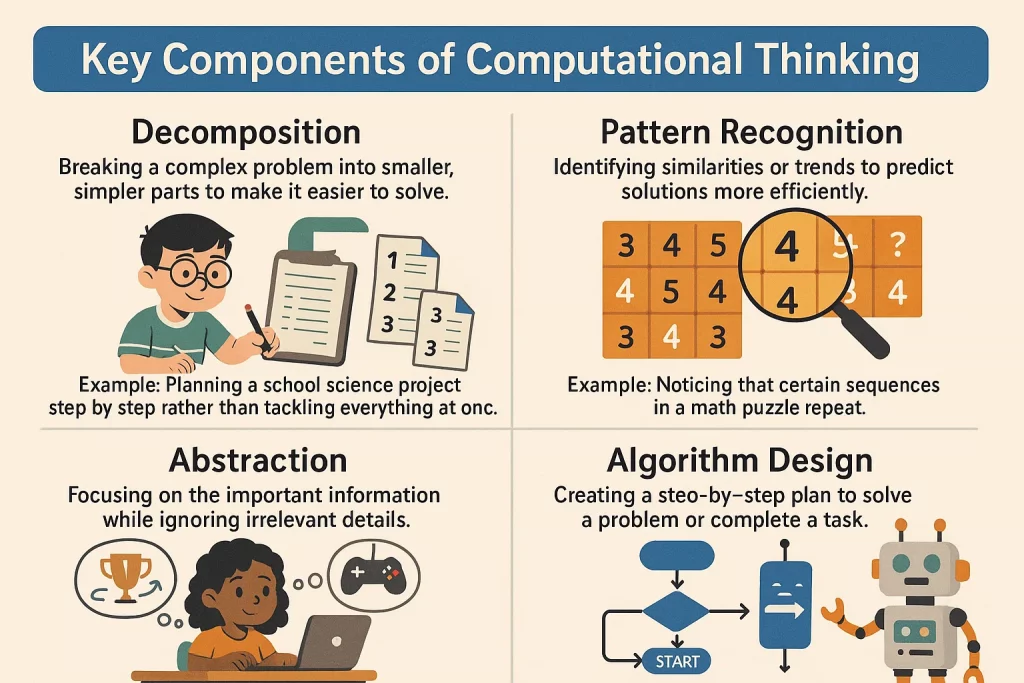
Key components of computational thinking include:
- Decomposition: Breaking a complex problem into smaller, simpler parts to make it easier to solve.
- Example: Planning a school science project step by step rather than tackling everything at once.
- Pattern Recognition: Identifying similarities or trends to predict solutions more efficiently.
- Example: Noticing that certain sequences in a math puzzle repeat.
- Abstraction: Focusing on the important information while ignoring irrelevant details.
- Example: Designing a game by concentrating on rules and objectives, ignoring cosmetic features initially.
- Algorithm Design: Creating a step-by-step plan to solve a problem or complete a task.
- Example: Writing instructions for a robot or a computer program to follow.
Why is Computational Thinking Important for Kids?
Teaching computational thinking early gives children skills that extend far beyond coding:
- Problem-Solving Mastery: CT trains kids to analyze complex problems, break them down, and tackle them systematically.
- Boosts Creativity: By recognizing patterns and designing solutions, children develop innovative ideas in projects, games, and real-world scenarios.
- Foundation for Coding: CT is the backbone of programming. Understanding decomposition, algorithms, and logical reasoning makes learning platforms like Scratch, MIT App Inventor, and Python easier.
- Enhances Analytical Thinking: Kids learn to evaluate solutions, predict outcomes, and think critically, which is invaluable for school and life.
- Encourages Collaboration: Many computational thinking activities involve teamwork, helping children communicate ideas clearly, collaborate effectively, and solve problems together.
How to Improve Computational Thinking for Kids
There are several ways parents and educators can help children develop and strengthen computational thinking:
- Introduce Coding Early: Platforms like Scratch, Code.org, MIT App Inventor, and Pygame let kids practice CT while building apps, games, and interactive stories.
- Use Logic and Puzzle Games: Games like Sudoku, chess, logic mazes, and pattern puzzles teach kids to recognize patterns and think step by step.
- Break Down Everyday Tasks: Encourage kids to decompose tasks like planning a school project, organizing their room, or cooking a recipe into clear, manageable steps.
- Encourage Storytelling and Sequencing: Activities that involve sequencing events or creating stories teach children to think in logical steps and plan ahead.
- Hands-On STEM Activities: Experiments, building simple robots, or designing paper-based challenges promote problem-solving and analytical thinking.
- Collaborative Projects: Group coding, game development, or team challenges teach kids to communicate, divide tasks, and solve problems together, reinforcing CT skills.
Conclusion
Computational thinking is a life skill, not just a coding skill. It helps children approach problems logically, develop creativity, and gain confidence in tackling complex challenges.
At Codingal, we believe that computational thinking (CT) forms the foundation of every great coder, engineer, and innovator. Through our engaging live classes, coding games, and interactive projects, kids don’t just learn how to write code, they learn how to think systematically, solve problems creatively, and build solutions with purpose.
By introducing kids to CT through coding, puzzles, and hands-on STEM projects, Codingal equips them with essential thinking skills for success in school, STEM fields, and future careers. The earlier kids start practicing computational thinking, the better prepared they will be to navigate a world powered by technology, logic, and innovation. 🚀
